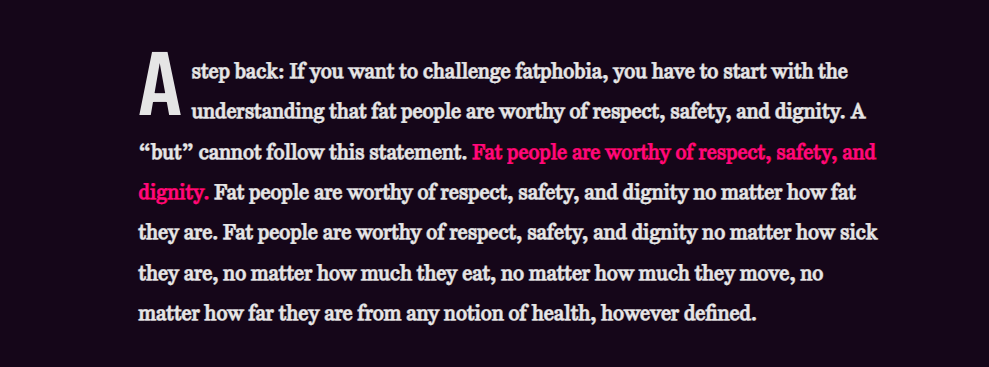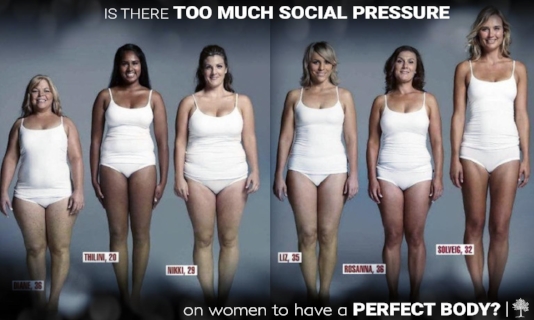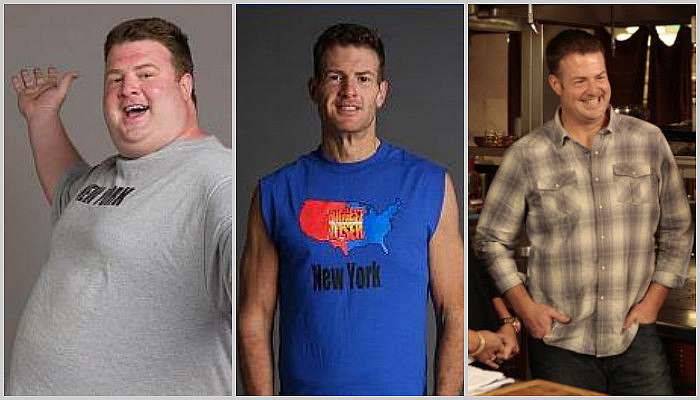Part 3 – Takeaways
Over the past two weeks, I’ve relayed some of the exploration and learning I’ve done on the subject of weight, as a result of my book club’s recent selection of Virginia Sole-Smith’s Fat Talk: Parenting in the Age of Diet Culture. [1] I will admit to experiencing a pretty substantial negative reaction to parts of her book, at which point it was clear that my fat bias was showing – and that was the impetus for writing this series. One of the points that came out of our book club discussion was the idea that we should all be naming anti-fat bias when we see it and engaging with others (or ourselves) to unpack it – and that, also, is what I was hoping to do here.

Image credit: [2]
Now having looked more closely at what Sole-Smith says in her book about the relationship between weight and health [3] and the conversations between parents and children on the subject of food, [4] I find that I agree with her in a general way most of the time. I think the problems I had with her book arose from my reactions to certain statements, examples, or solutions that ultimately, in my opinion, obscured her point. (Whether that was a factor of her writing or my anti-fat bias, who’s to say? But it’s probably a little bit of both.)
Respect, Safety, and Dignity
Ultimately, the message I took from this book is one that seemed so obvious and so groundbreaking at the same time – a quote from Marquisele Mercedes in an article she wrote for “Pipe Wrench” magazine about dismantling medical fatphobia: “If you want to challenge fatphobia, you have to start with the understanding that fat people are worthy of respect, safety, and dignity. A ‘but’ cannot follow this statement.” [5] And there it is – of course all humans should be worthy of respect, safety, and dignity… but we know that doesn’t happen (in a variety of situations).
One of the reasons we read this book for book club was because one of the moms worries about the body image standards her young daughter will be subjected to in our society. We talked about how parents want to make their child’s life perfect and protect them from the cruelty of the world, as well as how that can lead to an obsession with image in order to help shield them, especially (but not exclusively) for little girls. Of course we agreed that it’s not any girl’s responsibility to be thin in a world that has anti-fat standards, but breaking down motivations behind behaviors is hard, especially if you are genuinely trying to focus on healthy eating, not diet eating. And I feel that’s where Sole-Smith lost me.

Image credit: [6]
I understand that the author is worried about restrictive diets masked as healthy eating (she mentions several examples of such fad diets throughout the book), but I felt that there was little allowance for encouraging balanced meals out of fear that any discussion about food intake would result in negative body image and disordered eating. I don’t want to speak for her, her research, or her work, so I will admit that there may have been a disconnect between what she meant (a general “calm down” message to the majority of parents), and what I heard (a “don’t provide any structure” message to all parents).
What We Tell Ourselves
With more than two thirds of the American population considered to be overweight or obese, it does not surprise me at all that this book is doing well, from sales to reviews. Again, it contains important messages about how we should be treating all people with respect and dignity, how we should be focusing on health not weight, and how we should enable kids to build healthy relationships with food. All of these concepts are valuable and do not get enough air time. We as a society have a long way to go in incorporating these ideas more fully into how we look at the world, particularly when it comes to scrutinizing the media we consume.
However, in simplifying some of these very nuanced topics into generalizations, I think that the seeming dismissal of notable exceptions (even a lack of mentioning that they existed outside the scope of the book) made my reading of it feel more like pronouncements of absolutes that didn’t account for anything outside the author’s life experience. One of those missed opportunities is the idea that someone might be trying to lose weight for something other than societal expectations of thinness.

Image credit: [7]
Sole-Smith argues that being fat doesn’t necessarily mean being unhealthy, and there are studies that support that concept. Notably, a literature review of 10 published studies concluded that it was physical activity, not weight or BMI, that had an impact on all-cause mortality. [8] That said – and it could be my bias – I still felt like there was an aspect of readers being encouraged not to work out because “getting healthy” is often code for “getting thin,” which, according to Sole-Smith, is often unnecessary and even unhealthy, depending on the methods used.
However (again), if part of her message is the importance of accepting and respecting humans and their choices, we need to accept and respect choices that include working out and eating healthier foods, and I felt like that piece was missing in the book. If those choices are coming from a place of wanting to feel physically healthier and building healthier relationships with food (not from a place of trying to meet an external standard), there needs to be support (including information and resources) for that too.
~
And recognizing that this book is only a piece of the puzzle, I will leave it there for now. I do hope to wrap up this series in next week’s post with a look at some emerging resources and information. Until then, I’d love to hear your thoughts on the matter – or on this book if you’ve read it.
Thanks for reading!
[1] https://www.goodreads.com/en/book/show/61144950
[2] https://pipewrenchmag.com/dismantling-medical-fatphobia/
[3] https://radicalmoderate.online/fat-talk-part-1/
[4] https://radicalmoderate.online/fat-talk-part-2/
[5] https://pipewrenchmag.com/dismantling-medical-fatphobia/
[7] https://healthyeater.com/biggest-loser-then-now
[8] https://www.sciencedirect.com/science/article/abs/pii/S0033062013001552?via%3Dihub
0 Comments